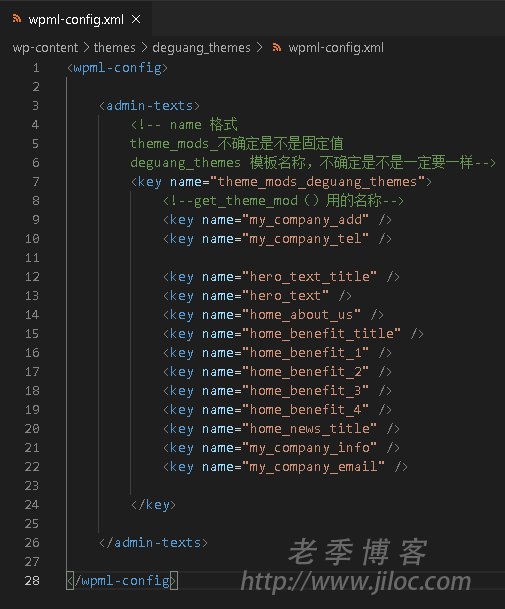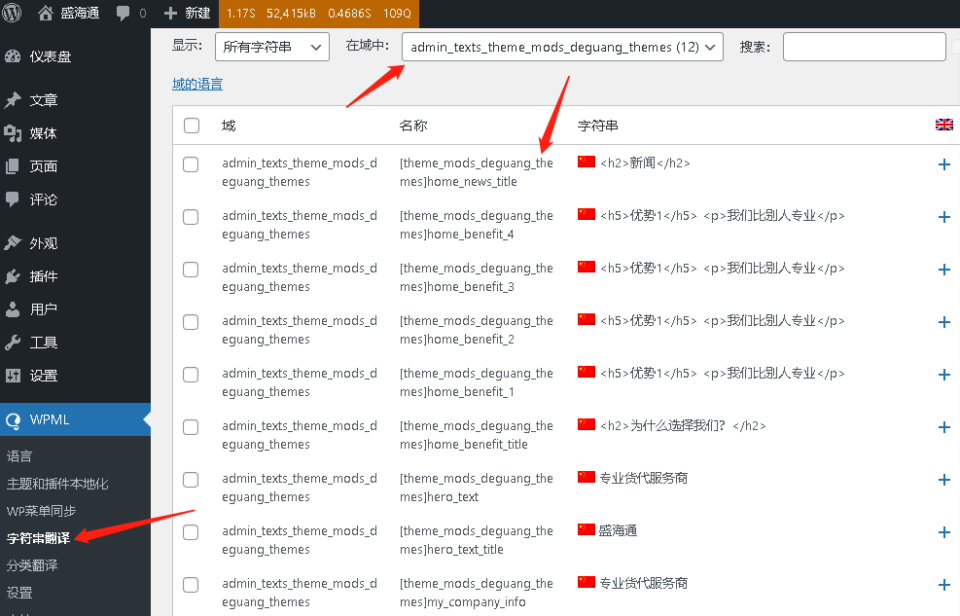我们在开发WordPress主题开发中,会需要用到多语言的版本。
网上已经有很多介绍 WordPress 多语言的插件了,比如 Polylang 和 WPML 等强大的多语言插件,但是只是介绍,很快都是能掌握怎么使用。今天我们要说的是如何使用 Polylang 插件来实现主题选项中字段的翻译。
WordPress多语言插件WPML在Polylang之前就已经创建了,因此对于一些插件和主题集成很好。WPML语言配置文件 wpml-config.xml已经可以翻译主题选项中的字段,Polylang 也支持 wpml-config.xml 文件的配置,而且 Polylang 的工作效率几本可以完成很多主题或者插件的翻译工作,所以我们创建一个 wpml-config.xml,添加以下代码到文件中:
<wpml-config>
<custom-fields>
<custom-field action="copy">quantity</custom-field>
<custom-field action="translate">custom-title</custom-field>
</custom-fields>
<custom-types>
<custom-type translate="1">book</custom-type>
<custom-type translate="1">DVD</custom-type>
</custom-types>
<taxonomies>
<taxonomy translate="1">genre</taxonomy>
</taxonomies>
<admin-texts>
<!--my_themes_options 为主题选项的全局变量名-->
<key name="my_themes_options">
<!--其中其它名称则是选项的 ID-->
<key name="option_name_1" />
<key name="option_name_2" />
<key name="options_group_1">
<key name="sub_option_name_11" />
<key name="sub_option_name_12" />
</key>
</key>
<key name="simple_string_option" />
</admin-texts>
</wpml-config>
将wpml-config.xml文件放在主题或者 Polylang 插件的根目录,再前台插件后台『语言——字符串翻译』中进行翻译即可,如下图:







发表回复